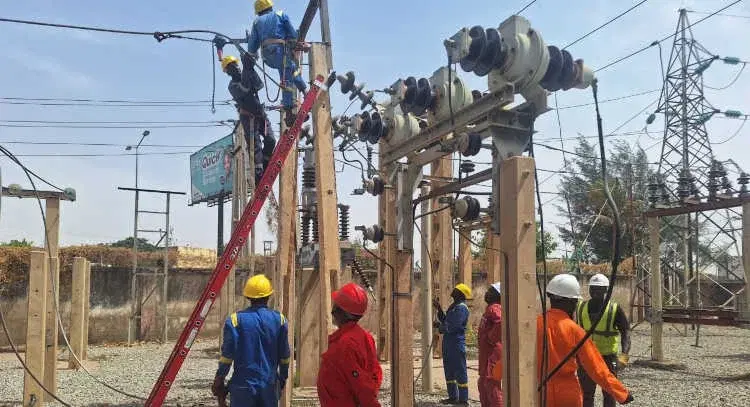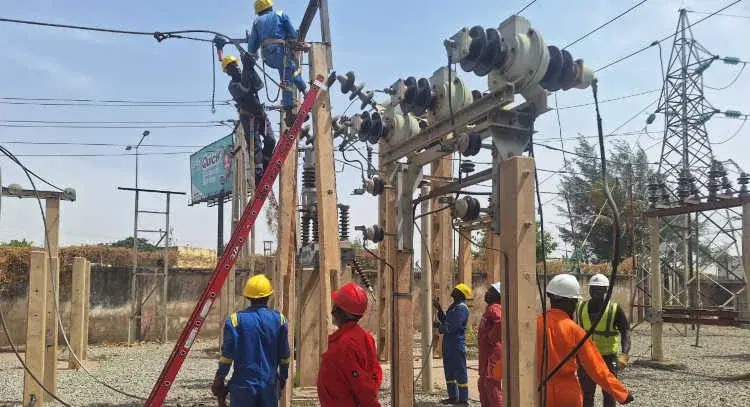
The Kano Electricity Distribution Plc (KEDCO) has expressed disappointment over the consistent antagonism from the Manufacturers Association of Nigeria (MAN) Kano Branch, despite sustained efforts to provide them with stable power supply and exclusive discounts to the tune of ₦3.0bn over the past 12 months.
It should be noted that we have transitioned the majority of our industrial and manufacturing partnerships and schemes away from being granted through MAN over the past 12 months, and the statement attributed to MAN that they will receive direct supply from NDPHC will not significantly impact our commercial operations (if it were possible under current regulations and technical realities).
It would be recalled that MAN Kano, last year, discouraged its members from paying the regulatory- approved tariffs and dragged KEDCO to court. The outcome of the court case was unsuccessful for MAN. Despite the rancour and huge losses accrued due to customer apathy, KEDCO offered through MAN Kano, exclusive discounts in the form of a discounted transition tariff to support manufacturers and allow them to adjust to the new market realities in a structured manner.
In a statement made available to DVCInsights signed by the Head, Corporate Communication, KEDCO, Sani Bala Sani noted that ‘Since launching the program in May 2024 that discount has amounted to a cumulative cost of ~ ₦3bn to KEDCO. We do not regret this as we view our industrial and manufacturing customers as the most important customer group as they provide jobs and economic output.’
‘Despite extending these discounts to key feeders, including 33kV Dangote, 33kV Dr. Jamil, 33kV Flour Mills, and 33kV Coca Cola, all serving predominantly MAN members, KEDCO was still experiencing billing losses of ~₦2.5Bn per month on average on feeders assigned to Maximum Demand Industrial (MDI) customers due to energy theft. Attempts to have MAN Kano support an aggressive stance
against members and partner on an energy theft reduction program proved unsuccessful.’
MAN Kano did nothing to support KEDCO in managing customer theft on industrial feeders.
The statement further noted ‘Due to improved performance across our other portfolio segments, despite the discount, KEDCO has been able to turn performance around and was the best performing DISCO in Northern Nigeria (in terms of market remittance), in the Q1 NERC released figures.’
KEDCO had even anticipated that the MAN Kano branch would work with its national body towards a beneficial partnership with various DisCos, to replicate the scheme for national development.
But strangely, MAN neither communicated this to its national body nor relevant stakeholders and never once publicly acknowledged the support.
Sadly, MAN has consistently painted a false narrative to NDPHC and other stakeholders regarding their supply status. To set the record straight, our maximum demand industrial customers (MDI) receive an average of 20hrs daily hours, signifying 95 percent in SBT compliance, making KEDCO one of the top performers nationwide. This is also available in NERC’s feeder compliance records.
KEDCO has consistently prioritized stable power to over 50 industrial feeders across Kano, Katsina, and Jigawa States, making it the ‘best DisCo for manufacturers’ in Nigeria (see chart below). No other utility offers as much dedicated industrial support in the region.
KEDCO maintains its readiness to extend a supportive hand to its willing customers on a bilateral basis, and will no longer offer support through MAN, as they have repeatedly failed to rise to expectations.
While urging MAN to strengthen mutually beneficial partnerships, rather than making statements that could elicit unnecessary panic and mislead stakeholders, KEDCO strongly encourages the NDPHC to work more constructively in the market and align its engagements with the realities of the electricity market for the collective benefit of the country.
KEDCO reaffirms its commitment to progressive partnerships and reliable power supply for socio-economic growth, while protecting the stability of the electricity sector for sustainable development.

